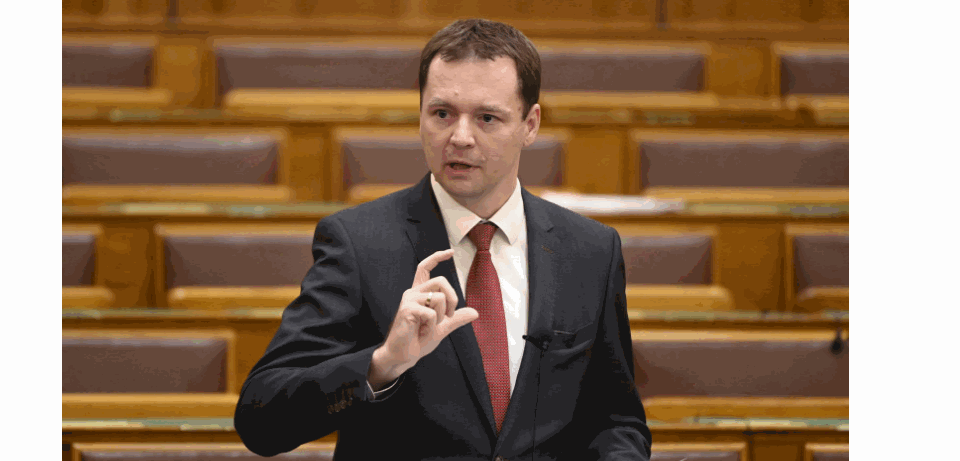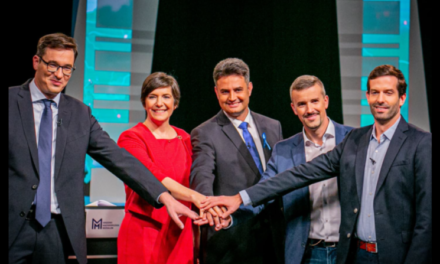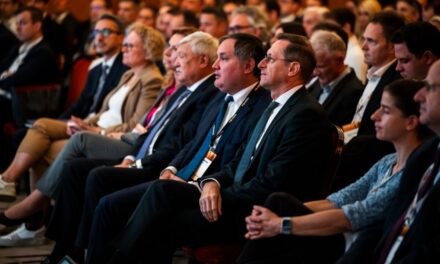The Brussels sanctions put businesses and the economy in a difficult situation. The government is initiating additional tax amendment proposals to protect businesses and jobs, which mean tax relief, simpler regulations, and reduced administrative burdens, Norbert Izer told MTI.
The draft law also contains tax amendments necessary for European Union legal harmonization and the whitening of the economy - pointed out the State Secretary responsible for tax affairs of the Ministry of Finance, after the Parliament put the government's proposal to amend the tax laws on the agenda.
Norbert Izer highlighted: the government submitted a total of 14 bills to the parliament on October 18, one of the most important of which is the autumn tax package signed by the Minister of Finance Mihály Varga. The document covers many tax types.
The most important and most effective simplification for sole proprietors applying flat-rate taxation is that from January 1, 2023, they must declare and pay the social contribution tax and the social security contribution only quarterly, by the 12th day of the month following the quarter in question, similar to the advance payment of the personal income tax. however, public charges are still determined monthly. This reduces the number of interactions between entrepreneurs and the tax authority by a quarter, and also reduces the administration related to submitting returns.
In addition, the draft law removes the condition for choosing flat-rate taxation, which also imposed an income limit for the tax year preceding the year of the election: from 2023, when choosing the method of taxation, only the fact that the expected income of sole proprietors for the current year does not exceed ten times the minimum wage must be taken into account, and in the case of an entrepreneur engaged in exclusively commercial activities, fifty times the minimum wage.
The state secretary also drew attention to a new feature: Hungary can be the first in the European Union to introduce the so-called e-receipt. Paperless receipting means less administration, ease of use and cost reduction for the entrepreneur, and it can also become a method of receipting to be followed worldwide from an environmental and epidemiological point of view. Parallel to the provision of data, taking into account the development of technology, the cash register system could be renewed in the future, which could encourage the spread of electronic receipts in the spirit of environmental awareness, Norbert Izer pointed out.
The good news is that the proposal raises to the level of law the provision contained in the state of emergency standard, which extends by two years the temporary effect of the discounted 5 percent general sales tax rate for the sale of new residential properties, and also includes temporary regulations to deal with protracted construction, said the state secretary.
It is also good news for those who are about to extend their home, that similarly to the tax exemption for apartments purchased with the use of the tax subsidy, the acquisition of property created by the expansion of a property owned by someone else with the tax subsidy will become tax-free. A typical case of this could be the attic installation, he added.
He noted: the focus of tax policy in recent years has been the reduction of taxes and the simplification of tax administration. The current amendment of the local tax law was adapted to the specific, simpler taxation structures included in each type of direct tax. As a result, there are four types of simplified business tax assessment methods tailored to different taxes. Therefore, from 2023, the proposal renews the rules of the local tax law for the simplified establishment of the business tax base.
The new model can be used by any business taxpayer if their annual income is no more than HUF 25 million, or HUF 120 million in the case of a retail flat-rate individual entrepreneur, the state secretary stated.
The business tax base for each municipality according to the seat and site will be differentiated in bands depending on the income. The business tax base is HUF 2.5 million up to a maximum income of HUF 12 million, HUF 6 million in the income range between HUF 12 and HUF 18 million, HUF 6 million between HUF 18 and HUF 25 million, and - in the case of a retailer with a flat rate tax - HUF 8.5 million up to an income of HUF 120 million According to the proposal, HUF will be the simplified basis of business tax. Thus, for example, the smallest entrepreneurs - up to an income of less than HUF 12 million - pay only fifty thousand HUF in tax annually.
Finally, Norbert Izer spoke about the fact that tax returns must be submitted to those concerned only if the entrepreneur's income exceeds the threshold or he ceases his taxable activity in the settlement. In this way, most businesses do not even have to file a tax return; the only business tax-related task will be the one-time annual payment of a fixed amount of tax advance.
Source: Magyar Hírlap/MTI
Photo: Tamás Kovács













